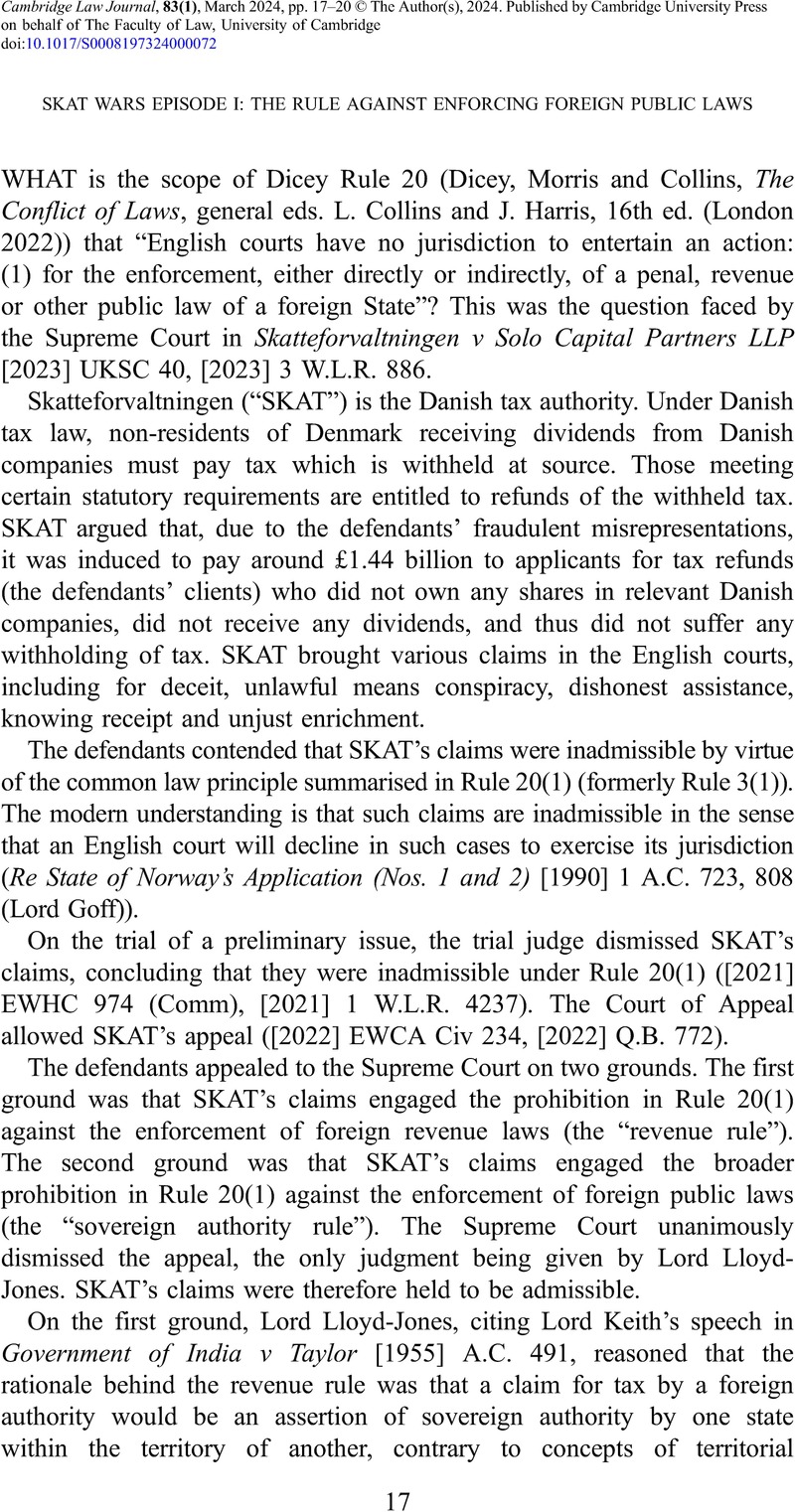No CrossRef data available.
SKAT WARS EPISODE I: THE RULE AGAINST ENFORCING FOREIGN PUBLIC LAWS
Published online by Cambridge University Press: 03 April 2024
Abstract
An abstract is not available for this content so a preview has been provided. Please use the Get access link above for information on how to access this content.

Information
- Type
- Case and Comment
- Information
- Copyright
- © The Author(s), 2024. Published by Cambridge University Press on behalf of The Faculty of Law, University of Cambridge
Footnotes
*
The authors are pupil barristers at 4 New Square Chambers and Quadrant Chambers respectively. The views expressed in this article are exclusively those of the authors and do not necessarily reflect the views of these chambers.

